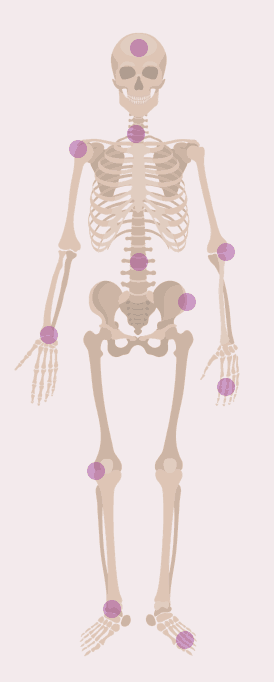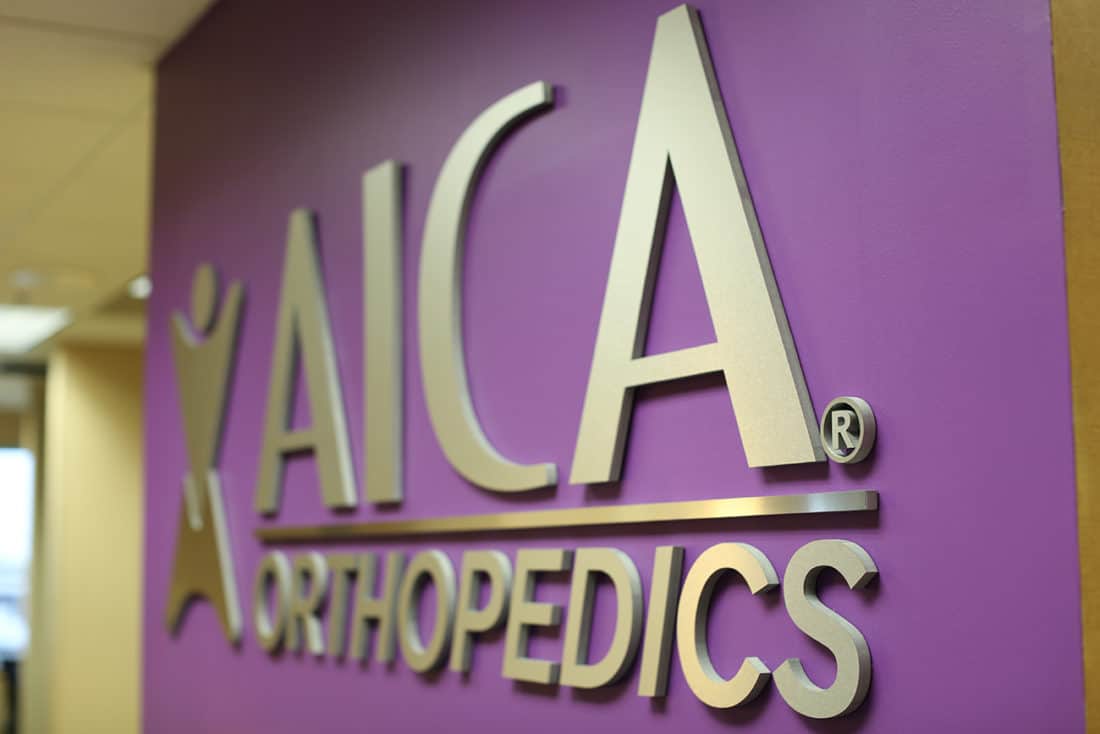Interventional Spine
Interventional spine medicine is a subspecialty of neuro spine and neurology. It seeks to utilize minimally invasive spine surgery
methods of diagnosis and treatment to ultimately eliminate pain and increase healing, health, and wellness in patients. Interventional spine care utilizes innovative techniques to help patients recover faster due to outpatient procedures and special imaging technology. The main goal of interventional spine care, aside from healing and pain relief, is the avoidance of major spine surgery. Nearly 90% of cases involving an injury to the back or neck can be resolved without the need to operate. While some circumstances require surgery, many major spine surgeries can be avoided with some of the innovative treatments offered by interventional spine specialists.
Back and neck pain are probably the two most common reasons for interventional spine treatment. Because back and neck pain can be caused by a number of issues, spine doctors will utilize diagnostic technology and interventional spine techniques to discover and pinpoint the exact cause and location of the pain. Next, our interventional spine specialists will work with a variety of other specialists to determine the best course of action and to implement the ideal treatment plan for each individual. If you or someone you love is experiencing pain that could be related to spinal problems, contact our physicians and specialists to learn more about how our team can help you become pain-free.
Diagnostic Capabilities at AICA Orthopedics
Our team of specialists needs to diagnose your pain and injury properly in order to create a treatment plan. There are various types of tests our doctors will utilize to help them make their determinations about your specific case. The most commonly referenced tests in the event of spinal interventions are EMG’s or Electromyographs, SSEP’s or Somatosensory Evoked Potential, and Nerve Conduction Velocity or NCV. They help to inform us of the state and responsiveness of nerves involved in the injury.
An EMG is conducted with an electromyograph and helps us see the difference between true muscle pain and pain caused by nerve disorders that contribute to muscle weakness. An SSEP shows us the ability of the spinal cord nerves to send messages to the brain. NCV’s detect nerve impulse speed by using electrodes. A slower time result can indicate different types of nerve damage.
In more traumatic cases, there might be other causes of nerve complications, such as a specific injured area beginning to experience pain. In these cases, standard diagnostic tests might be ordered as well. If an injury resulting from an incident or chronic pain occurs, nerve damage and spinal trauma can ensue. MRI tests indicate trauma to the soft tissue, CT scans determine damage to the soft and hard tissue, as well as showing the state of the internal organs. X-rays show us a picture of potential skeletal injury, and how it might be affecting the spine. Spinal Interventions are often necessary when a traumatic event has occurred, but the need for them is sometimes overlooked until the pain has become an ongoing problem. If you feel you could benefit from the help of a trained spinal intervention specialist. Call our offices today to set up a time to speak with an expert and begin your healing process.



What Minimally Invasive Spine Surgery Options Are Available?
If interventional spine treatment has been recommended to you, it could mean a number of things. First, it likely means that major surgery is not going to be needed. Minimally invasive spine surgery procedures are becoming more and more effective as technology advances, and many spine issues can be dealt with in these less invasive ways. The most common type of interventional spine treatment is given in the form of injections. A numbing medication and/or anti-inflammatory corticosteroid can be injected into the area of concern quickly and easily. This can bring about months of pain relief for those suffering from pain, but it can also help doctors pinpoint the specific location of the pain. Epidural Steroid injections can help to reduce pain in the legs and arms caused by damage to the nerves. Also available are facet joint injections, which help to alleviate pain caused by vertebrae that are aging and hardening. SI or Sacroiliac joint injections reduce the pain felt when the part of the body that connects the spine and the pelvis begins to degenerate.
Nerve Root Injections can provide relief by injecting a steroid directly into the nerve.
Radiofrequency neurotomy is another interventional spine procedure that can bring about pain relief. It uses specialized X-Ray technology to deliver radiofrequency and heat to a particular location with a needle, which disables the nerves from transmitting pain signals.
IDET or intradiscal electrothermal therapy uses heat therapy to remodel the walls of discs that have been damaged and cracked over time and now cause pain.
If your interventional spine specialists determine that you do need surgery, we can perform a number of minimally invasive surgeries to treat your condition. These include discectomies, disc replacements, spine fusion, kyphoplasty, vertebroplasty, and spinal cord stimulators.
Interventional Spine Specialists at AICA Orthopedics
No matter what type of issue you’re having with your back or neck, our interventional spine specialists can help you. They are highly trained, very experienced, and well educated in their specialty. They work with other specialists at AICA Orthopedics to prescribe you the best course of treatment for your particular health concern. If you need supplemental physical therapy or chiropractic care, they will help you to attain that. If they believe you have a spine condition that is not within their scope of treatment, they will refer you to another specialist so that you can get the best care possible. If you suspect you have a spinal issue that can be treated with interventional spine care, get in touch with the team at AICA Orthopedics today.




